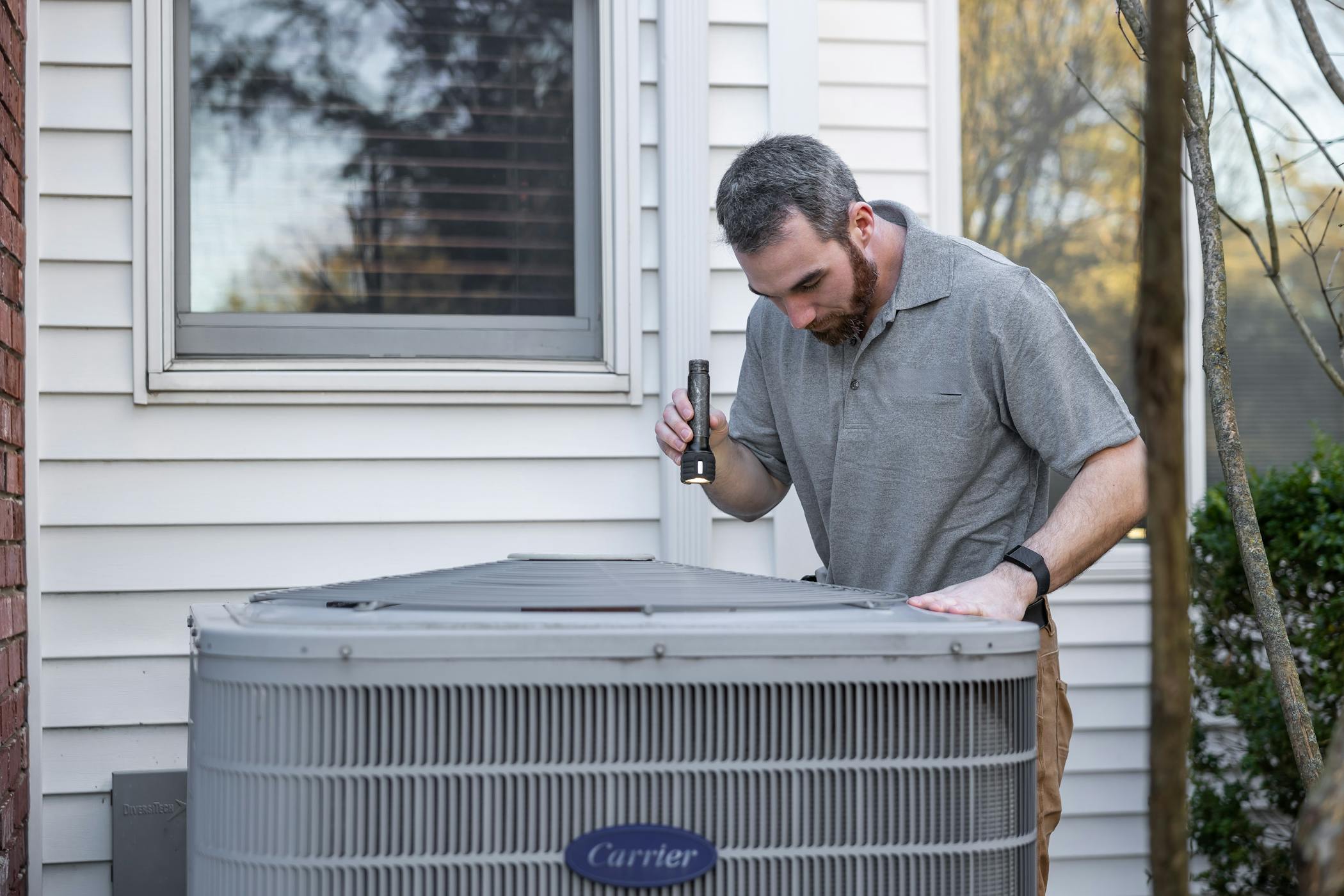When the summer heat hits North Carolina, a broken air conditioner can feel like an emergency. But before you sign that appealing “no money down” contract, make sure you know exactly what you’re agreeing to.
What Started as a Simple AC Replacement
Last July, when Anna and her husband’s air conditioning unit failed during the sweltering North Carolina summer, they did what many homeowners do—they called for help. Service Experts of Raleigh responded with what seemed like the perfect solution: their “Advantage Program.”
The pitch was compelling:
The Retzlaffs signed on the dotted line, believing they were financing the purchase of two new HVAC units for their Raleigh home.
The Shocking Discovery
For a full year, the couple made their monthly payments without question. Everything seemed straightforward until they decided to sell their home and contacted Service Experts for a payoff amount.
The number they received was staggering.
“They told my husband $31,000, they told me $35,000, and they said ‘it could go up, it could go down. We don’t really know,'” Anna recalled.
The math didn’t add up. With an original price around $26,000 and payments of $5,000-$6,000 already made, they expected a payoff of roughly $18,000-$20,000.
The Fine Print Revelation
When Anna requested a copy of their contract, the truth became clear: they had never purchased their HVAC units at all. They had been leasing them.
“The word lease was never used” during the sales process, Anna explained. But there it was in the contract—a lease-to-service agreement with terms that would have shocked any homeowner:
The Real Cost of “Convenience”
What appeared to be a convenient financing option was actually a long-term rental agreement. The Retzlaffs discovered they would need to pay significantly more than the original equipment cost to actually own their HVAC units, or face substantial penalties to terminate early.
While the lease did include routine maintenance, repairs, and part replacements, the total cost over the full term would far exceed simply purchasing the units outright or using traditional financing.
The Resolution
After Anna filed a dispute, Service Experts acknowledged the situation and worked to address their concerns. The company ultimately offered a lower payoff amount and gave the Retzlaffs full credit for payments already made.
A Service Experts representative stated: “We take Mr. and Mrs. Retzlaff’s concerns very seriously since Service Experts’ goal is to completely satisfy our customers’ needs. We are working directly with Mr. and Mrs. Retzlaff to address their concerns and expect to resolve this matter soon.”
Lessons for Every Homeowner
Anna’s experience offers valuable lessons for anyone considering HVAC services:
Before signing any contract:
Red flags to watch for:
Property Management Frequently Asked Questions (FAQ)
The Bottom Line
While lease-to-own programs can be legitimate options for some homeowners, transparency is crucial. No homeowner should discover they’re in a lease agreement after believing they purchased equipment.
When your HVAC system fails and you’re facing the heat, take time to understand your options. Whether you choose traditional financing, cash purchase, or a lease program, make sure you know exactly what you’re signing.
As Anna learned: “Just be on the lookout. Read the fine print and ask to see the entire contract before you sign it.”
To read more, visit ABC11 Troubleshooter | Raleigh homeowner learns she leased her HVAC units; didn’t buy them – ABC11 Raleigh-Durham.












